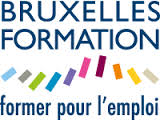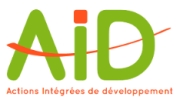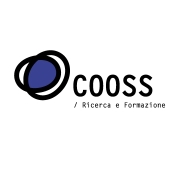The partners of the OPC-SFC project were confronted, from the outset, with two types of difficulties related to language. On the one hand, the native languages of the teams were different and, on the other hand, the work on Behavioral Skills requires a consensus on a set of specific concepts, definitions and keywords.
I discover
I want to know more about soft skills
Soft skills refer to the reflective capacity of the person in relation to the characteristics of the situations they encounter.
This capacity can be of an organizational order when the person is in relation to the quality of his work (eg: to prioritize, anticipate, verify, ...), of a social or relational order when the person is in relation to others and establishes relationships (eg: negotiating, arguing, cooperating, etc.) or of a psycho-affective nature when the person is in relation to himself and his own limits (eg: adapting, training, etc.).
Behavioral Know-How a resource to be mobilized within the framework of the Skills-Based Approach (APC)
The skills-based approach focuses its learning mechanism on the skills to be mastered in a given context.
It is these skills that will impose the choice of the objectives to be pursued in training and that of the contents to be covered.
Training to develop skills means helping the learner to build, in a sustainable way, his competence to perform the activities that make up a profession and to face the realities and situations that he may be confronted with in the exercise of the latter. .
The implementation of the APC has a direct impact on the development of training programs, and these will be based on the skills to be mastered for each profession. It also impacts the follow-up of learners, which should be considered in order to verify that these skills have been acquired.
The APC also makes it possible to perceive in a concrete way the know-how
behaviors essential to the exercise of the profession.
Capital gain SFCs
Given the economic context and the challenges facing Europe, and also given the particular situation of the labor market, the institutions active in the field of socio-professional integration play a particularly important role in the construction of solutions aimed at:
- developing the skills of job seekers
- support for companies wishing to develop the continuing education of their workers
- improving the training of teaching staff, all operators combined.
In this context, and in order to promote the sustainable integration of people in training, the development of key educational tools aimed at learning and observing Behavioral Know-How in a professional situation is very important.
Indeed, the latter are considered strategic both by companies and by training operators. Their learning makes it possible to respond to changes in the organization of work and to take personal development into account.
The expectations expressed regularly by all the players in the world of work and training will therefore be heard and met: to develop Behavioral Know-How in trainees.
These are already worked on in vocational training, but they are most often done informally in teaching practices. It has become necessary to consolidate this aspect of the training. The learning of Behavioral Know-How is essential today, and this in addition to technical knowledge and know-how.
In the same way as technical skills, soft skills can be mobilized in professional scenarios that support learning in the context of formative assessments. This requires that they be clearly defined, identified and broken down into observable indicators, which our project has set itself as objectives.
Glossary to better understand
A common language...
It was therefore important to take time to find a common language and define a set of terms and concepts.
The document below presents the project's glossary, supplemented, where possible, with official definitions, sometimes produced by Europe, sometimes by various Education and Vocational Training experts from the partner countries. This is indeed a summary. To find out more, we refer you to the many books and articles listed in the bibliography and references.
Schematically, we could represent the different levels of non-technical skills by the diagram below. The key skills are represented here as the base considered essential by Europe for a good integration of the person.
Resources and Activities
- Interactive Glossary
- Jumble of words
- Game of envelopes
- Schematic of Bunk
- Process of the recommended methodology
- Henri Boudreault - Professional know-how - Commented PowerPoint - Reflections for an educational scenario
- Skill Rocket
- Practical guide for the integration of Behavioral Skills in a training process
Are you looking for other tools to work on SFC / soft skills?
I experiment
I test and reflect on my soft skills
I practice
I integrate my soft skills into my practices
I accompany
I support the development of soft skills
We offer you tools educational to raise awareness, train, support and promote behavioral know-how / soft skills and join our community.








